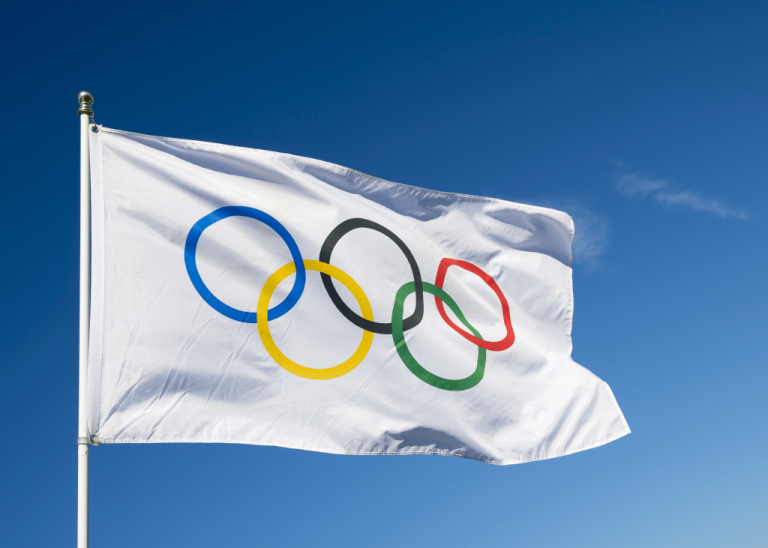The Role of Sports Nutrition for Good Performance
In the world of sport, where every second and every movement can define the outcome of months of training, the search for competitive advantages is incessant.
One of the most critical areas, and perhaps least valued by amateurs, is sports nutrition. Understanding how to fuel your body is not just a health issue, but a fundamental lever to improve performance, accelerate recovery and even prevent injuries.
In this article, we will explore how sports nutrition It could be the secret ingredient to reaching the peak of your physical potential.
Browse the content

The Basics of Sports Nutrition
Macronutrients and Sports Performance
The foundation of sports nutrition involves a deep understanding of macronutrients: carbohydrates, proteins and fats. Each plays a vital role in how your body responds to exercise.
• Carbohydrates: They are the main source of energy during high-intensity exercise and are fundamental in sports nutrition.
A meal plan rich in quality carbohydrates helps maintain muscle glycogen stores, sustaining performance during training and competitions.
• Proteins: Essential for muscle recovery and growth, proteins are pillars of sports nutrition. Consuming an adequate amount of protein helps repair post-exercise muscle damage, facilitating recovery.
• Fats: Although often seen as villains, fats are essential in sports nutrition, especially for long-term exercise. They provide a dense source of energy and are crucial for endurance athletes.
Essential Micronutrients
In addition to macronutrients, sports nutrition also covers the importance of micronutrients, such as vitamins and minerals.
These components help in the optimized functioning of the body, supporting processes such as muscle oxygenation and muscle contraction. Hydration, although not a nutrient, is a critical aspect of sports nutrition, with a direct impact on performance and recovery.
Diet Planning for Athletes
Personalized Diets According to Sport
Sports nutrition does not take a one-size-fits-all approach; it varies significantly depending on the type of sport practiced. Endurance athletes, such as marathon runners, have different needs than strength sports players, such as weightlifters. Customizing the nutritional plan is essential:
• For endurance sports, sports nutrition emphasizes greater carbohydrate consumption to maximize muscle glycogen stores.
• In strength sports, the emphasis is on proteins, which are crucial for muscle repair and growth.
• Team games require a balanced mix, adjusting macronutrient intake to meet energy, recovery and performance needs throughout the game.
Diet Adjustments Based on the Training Phase
Sports nutrition also adapts to different phases of training, known as nutritional periodization. This strategy adjusts nutrient intake to align with specific phases of preparation, competition and recovery, optimizing both performance and recovery.
Advanced Nutritional Strategies
Supplementation and Performance
Supplementation can play a valuable role in sports nutrition, complementing the diet and ensuring adequate intake of crucial nutrients.
Supplements such as BCAAs, whey protein, creatine and beta-alanine have scientific evidence supporting their benefits on sports performance and recovery. However, it is essential to consult a sports nutrition professional before starting any supplementation.
Pre and Post-Workout Nutrition
Sports nutrition pays special attention to meals consumed before and after training. A pre-workout meal rich in carbohydrates and protein can provide the energy and amino acids needed for an effective workout. Post-workout, nutrition should focus on recovery, with a good balance between carbohydrates to replenish glycogen and proteins for muscle repair.
Case Studies: High Performance Nutrition
Examining real cases of professional athletes, the transformative impact of sports nutrition becomes evident. Seemingly small changes to an athlete's diet can result in significant improvements in performance. These case studies illustrate how personalized nutrition plans and specific adjustments can lead to notable achievements in competitions.
Adapting Sports Nutrition to Different Environments and Conditions
Nutrition at Altitude and Extreme Conditions
• Exploration of how sports nutrition should be adapted when athletes train or compete at high altitudes or extreme environmental conditions (intense heat, severe cold).
• Discussion about increased macronutrient and micronutrient needs, strategies for maintaining adequate hydration and the impact of these conditions on energy metabolism.
• Practical tips for preparing a nutritional plan that considers these factors, including adjustments to fluid and electrolyte intake, as well as diet composition and timing.
Strategies for International Travel and Competitions
• Address the challenges of maintaining adequate sports nutrition during long trips and participation in international competitions.
• Advice for dealing with changing time zones, food availability and adapting to different cuisines, whilst maintaining a focus on optimizing performance and recovery.
• Examples of how professional athletes plan their meals and supplements before, during and after travel, including strategies to minimize the risk of dietary illnesses and ensure adequate nutritional intake.
Mental Health and Sports Nutrition
Impact of Nutrition on Athlete's Psychological Well-being
• Discussion of the connection between sports nutrition and mental health, addressing how nutritional deficiencies can affect athletes' mood, concentration and mental performance.
• Insights into foods and nutrients that have been linked to improved psychological well-being, such as omega-3 fatty acids, antioxidants, B vitamins, and amino acids.
• Strategies to incorporate nutrition that supports not only the body, but also the athlete's mind, reinforcing the importance of balance between physical and mental health in the search for sports performance.
Stress Management and Recovery through Nutrition
• Examination of the ways in which sports nutrition can be used as a tool for stress management and psychological recovery, especially during periods of intense training or after competitions.
• Food tips and eating patterns that can help reduce oxidative stress and inflammation, promoting faster and more effective recovery.
• Practical advice for athletes on how to adapt their diet during recovery periods, emphasizing the importance of listening to your own body and responding to its nutritional and emotional needs.
Conclusion
Sports nutrition is a cornerstone of athletic success. Through a deep understanding of macronutrients and micronutrients, nutritional periodization strategies, and judicious use of supplements, athletes can optimize their performance, improve recovery, and even prolong their careers. We encourage all athletes, from amateurs to professionals, to consider sports nutrition not as a supplement, but as an integral part of their training regimen.
Sports nutrition transcends the mere search for short-term performance improvements; it establishes itself as a foundation for a long and healthy sporting life. We encourage you, whether you are a fitness enthusiast, an amateur athlete or a professional, to take a more conscious and informed approach to your eating. Here are some recommended initial actions:
• Consult a Professional: Sports nutrition is highly individualized. Consulting a sports nutritionist can provide an eating plan tailored to your specific needs, performance goals and overall health. • Nutritional Education: Invest time in learning about sports nutrition. Understanding the basics can help you make more informed and autonomous food choices. • Try and Adjust: Sports nutrition is not static. What works well for one athlete may not be ideal for another. Be open to experimenting with different eating strategies and adjusting your diet as needed, always with professional guidance. • Monitoring and Feedback: Track your performance, recovery and overall well-being in relation to dietary changes. Continuous feedback is crucial to refining and optimizing your sports nutrition.





